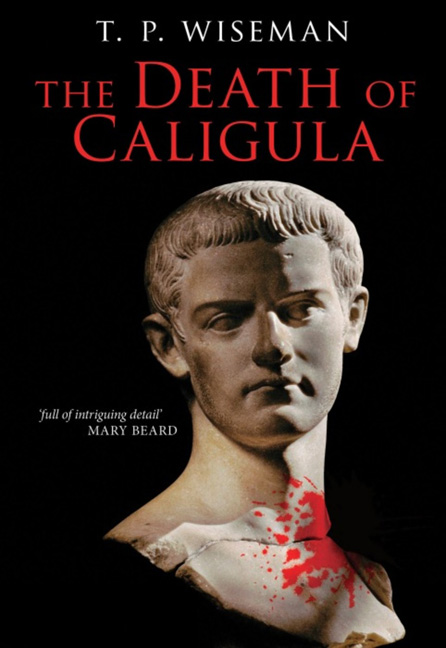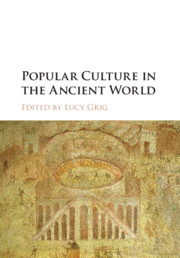Refine search
Actions for selected content:
23989 results in Ancient history
Appendix 2: - The ‘Cretan Dossier’ of Mylasa
-
- Book:
- Caria and Crete in Antiquity
- Published online:
- 13 July 2017
- Print publication:
- 13 July 2017, pp 217-230
-
- Chapter
- Export citation
Maps
-
- Book:
- Caria and Crete in Antiquity
- Published online:
- 13 July 2017
- Print publication:
- 13 July 2017, pp x-x
-
- Chapter
- Export citation
Contents
-
- Book:
- Caria and Crete in Antiquity
- Published online:
- 13 July 2017
- Print publication:
- 13 July 2017, pp vii-viii
-
- Chapter
- Export citation
4 - Interaction and the Reception of the Cretan Connection during the Hellenistic Period
-
- Book:
- Caria and Crete in Antiquity
- Published online:
- 13 July 2017
- Print publication:
- 13 July 2017, pp 124-168
-
- Chapter
- Export citation
Dedication
-
- Book:
- Caria and Crete in Antiquity
- Published online:
- 13 July 2017
- Print publication:
- 13 July 2017, pp v-vi
-
- Chapter
- Export citation
5 - Inscribing History at Magnesia-on-the-Maeander: Civic Engagement with the Past
-
- Book:
- Caria and Crete in Antiquity
- Published online:
- 13 July 2017
- Print publication:
- 13 July 2017, pp 169-188
-
- Chapter
- Export citation
Abbreviations
-
- Book:
- Caria and Crete in Antiquity
- Published online:
- 13 July 2017
- Print publication:
- 13 July 2017, pp xv-xx
-
- Chapter
- Export citation
Concluding Remarks
-
- Book:
- Caria and Crete in Antiquity
- Published online:
- 13 July 2017
- Print publication:
- 13 July 2017, pp 209-212
-
- Chapter
- Export citation
3 - The Case of Miletos: Archaeology and Mythology
-
- Book:
- Caria and Crete in Antiquity
- Published online:
- 13 July 2017
- Print publication:
- 13 July 2017, pp 91-123
-
- Chapter
- Export citation
6 - A ‘Cretan-Born’ Zeus in Caria: Religious Mobility between Caria and Crete
-
- Book:
- Caria and Crete in Antiquity
- Published online:
- 13 July 2017
- Print publication:
- 13 July 2017, pp 189-208
-
- Chapter
- Export citation
Appendices
-
- Book:
- Caria and Crete in Antiquity
- Published online:
- 13 July 2017
- Print publication:
- 13 July 2017, pp 213-230
-
- Chapter
- Export citation
Introduction: Approaching the Topic of Carian–Cretan Interaction
-
- Book:
- Caria and Crete in Antiquity
- Published online:
- 13 July 2017
- Print publication:
- 13 July 2017, pp 1-31
-
- Chapter
- Export citation

The Death of Caligula
- Flavius Josephus
-
- Published by:
- Liverpool University Press
- Published online:
- 12 July 2017
- Print publication:
- 31 December 2013
-
- Book
- Export citation

Popular Culture in the Ancient World
-
- Published online:
- 04 July 2017
- Print publication:
- 28 November 2016
3 - Identity
-
- Book:
- Visual Style and Constructing Identity in the Hellenistic World
- Published online:
- 17 June 2017
- Print publication:
- 29 June 2017, pp 108-184
-
- Chapter
- Export citation
Illustrations
-
- Book:
- Visual Style and Constructing Identity in the Hellenistic World
- Published online:
- 17 June 2017
- Print publication:
- 29 June 2017, pp xi-xvi
-
- Chapter
- Export citation
Dedication
-
- Book:
- Visual Style and Constructing Identity in the Hellenistic World
- Published online:
- 17 June 2017
- Print publication:
- 29 June 2017, pp vii-viii
-
- Chapter
- Export citation
References
-
- Book:
- Visual Style and Constructing Identity in the Hellenistic World
- Published online:
- 17 June 2017
- Print publication:
- 29 June 2017, pp 261-262
-
- Chapter
- Export citation
Bibliography
-
- Book:
- Visual Style and Constructing Identity in the Hellenistic World
- Published online:
- 17 June 2017
- Print publication:
- 29 June 2017, pp 263-306
-
- Chapter
- Export citation
Appendix: Antiochos’ Nomos: Translation
-
- Book:
- Visual Style and Constructing Identity in the Hellenistic World
- Published online:
- 17 June 2017
- Print publication:
- 29 June 2017, pp 255-260
-
- Chapter
- Export citation
